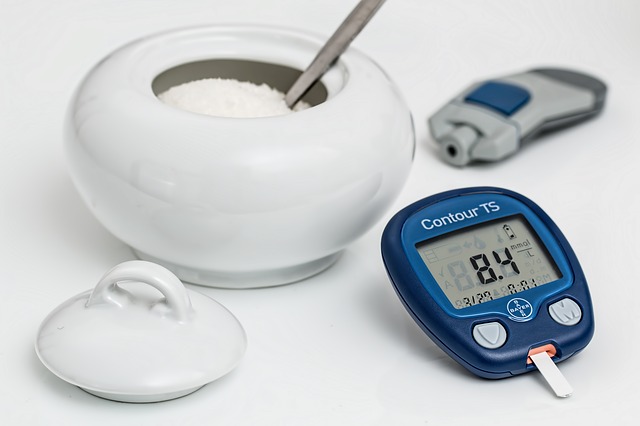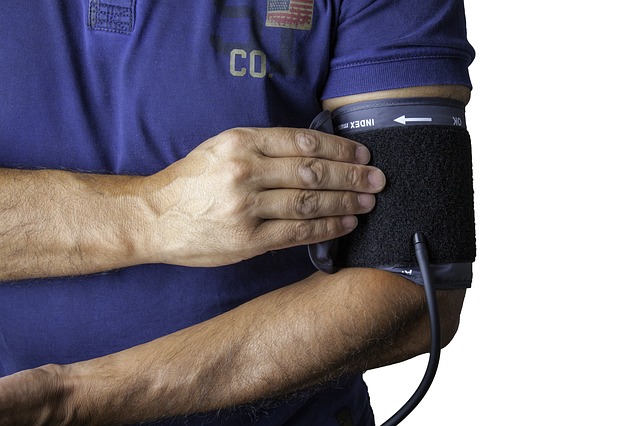Benefits of Cardiovascular Exercise, What You Need to Know
The benefits of cardiovascular exercise are supported by scientific evidence gathered over many years of systematic investigation and clinical trials. Cardiovascular exercise is beneficial all round. This is to say, the benefits of cardiovascular exercise extend to both physical and emotional components of our human make-up. It should be no wonder urban streets and parks are filled with joggers and cyclists just about anytime of the day. The scientific message of health through exercise continues to be well received.

One such message came out of New Zealand. In 1993, a Sports Medicine journal (1993 Oct;16(4):225-36) shared that the benefits of cardiac exercise such as maintaining a rigorous exercise routine 2 days per week cut incidence of coronary events by 50%.
You may think of coronary events as heart attack also known as myocardial infarction, heart failure, angina also known as chest pain and even sudden death
The main problem is that too many people, for a variety of reasons, are not pursuing routines supported by adequate cardiac exercise thereby missing out on all the benefits associated with exercise.
We set out to explore benefits of cardiovascular exercise backed by scientific evidence. This is what we found...

But first...what is cardiovascular exercise?
Cardiovascular refers to the heart and entire system of blood vessels which is also known as the circulatory system. You may have heard people making reference to "cardio" exercise. This is short for cardiovascular exercise. Cardio exercise is aerobic in nature, meaning it involves the circulation of oxygenated blood by the heart to working muscles.
"The American College of Sports Medicine (ACSM) defines aerobic exercise as any activity that uses large muscle groups, can be maintained continuously and is rhythmic in nature"
Cardiovascular exercise therefore necessarily increases the heart rate and breathing rate to step-up oxygen circulation and oxygen intake, respectively. There is also anaerobic exercise. This is the antithesis of aerobic or cardiovascular exercise. Anaerobic activity causes you to run out of breath therefore has less oxygen intake. Examples are weight lifting and sprinting.
In an attempt to maximize the benefits of cardiovascular exercise, people often wonder which is the best cardio exercise. As surprising as it may be, there is no "best" cardiovascular exercise. All types such as running, jogging, swimming, mountain hiking have benefits. The secret is in finding which of them you best love to routinely follow.
If there is aerobic and anaerobic exercise it is worthwhile considering what's under the hood as it pertains the benefits of each of the two...
Benefits of Cardiovascular Exercise: Aerobic vs Anaerobic
A 2017 World of Cardiology journal (2017 Feb 26; 9(2): 134–138) review would not say which of the two, aerobic or anaerobic exercise, is superior. Instead, the study concluded that both cardiovascular exercise and anaerobic exercise bring unique and associated benefits to the party in the improvement of cardiovascular health.
Furthermore, the review gave a clear distinction between aerobic and anaerobic exercises which is rooted in their respective use and non-use of oxygen as an external energy generating source. According to the researchers, cardiovascular exercise relies on oxygen to produce a type of physiological energy known as adenosine triphosphate (ATP). On the other hand, anaerobic exercise, without use of oxygen, resorts to breaking down glucose (glycolysis) and fermentation to produce ATP energy.
In addition, an interesting insight that emerged out of the World of Cardiology journal review was that the benefits of cardiovascular exercise were limited by both frequency and quantity.

In this regard, another set of researchers writing in 2015 in the Journal of American College Cardiology (2015 Feb 10;65(5):411-9), removed some wind out of the sails of cardio exercise, jogging in particular. They discovered that beyond 1 to 2.4 hours of jogging per week there was no further benefit in reduced risk of mortality to be derived from jogging. The study findings represented a U-shaped association between jogging and death (all-cause mortality).
Concerning the benefits of anaerobic exercises, a Turkish study observed that a thirty second high intensity anaerobic exercise program resulted in a biochemical reaction which releases a chemical substance used in vasodilatation. Vasodilatation is the relaxation of blood vessels which is key to lowering blood pressure.
In other studies, anaerobic exercises have been shown to positively impact the lipid profile. A poor lipid profile is associated with risk factors of heart disease.
In the final analysis the benefits of cardiovascular exercise and those of anaerobic exercise are derived differently. However, it seems obvious that cardio exercises are more appealing and in many cases more easily accessible to the generality of the population.
Benefits of Cardiovascular Exercise on Long Term Health
Death by any Cause
One of the most established in proof as among the benefits of cardiovascular exercise on long term health is death by any cause. Studies show that individuals who are active or fit have a longer life than their counterparts who are not.
For example, a 1999 study published in the journal JAMA (1989 Nov 3;262(17):2395-401) found that over a period of 8 years those in the lowest groups of fitness, compared to those in the upper physical fitness group, were associated with a relatively higher risk of death both men and women. These results were derived from treadmill exercise with itself is an example of cardiovascular exercise.
In the same vein, another study shared in the American Journal of Medicine (2004 Dec 15;117(12):912-8) individual exercise capacity as measured from weekly energy expenditure could be used to predict death by any cause. The research further noted that exercise capacity and energy expenditure were stronger in predicting death than smoking, high blood pressure, obesity and even diabetes.
These two studies, in other words, tell us that the benefits of cardiovascular exercise on long term health is that it reduces the risk of death by any cause also known as all-mortality death.
Cardiovascular Diseases
Apart from reducing the risk of death by any cause, cardiovascular exercise on a long term basis also decreases the risk of CVD. For clarity, CVD refers to a cluster of heart and blood vessel related problems such as coronary heart disease, coronary artery disease, hypertension, peripheral artery disease, stroke and arrhythmia among others.
In general, cardiovascular diseases are a long term health issue. They generally take time to develop. One of the earliest scientific observations on the benefits of cardiovascular exercise on long term health was displayed through a simple unassuming daily routine followed by London bus operators.
The routine published in 1966 in the journal Lancet (1966 Sep 10;2(7463):553-9) showed that London bus ticket takers had an astonishingly lower incidence of coronary heart disease (CHD) compared to their fellow London bus drivers who had high rates of CHD.
It turned out that this was the case because bus drivers spent most of their time sitting while ticket takers went up and down the double-decker buses checking tickets. Picture this, the ticket checkers spent a greater part of their daily work performing a type of cardiovascular aerobic exercise.
Other studies conducted in the last 3 decades have also provided backing on the benefits of cardiovascular exercise on long term health. These include a study following longshoremen over a period of 22 years whose jobs required high physical activity. It was shown that they had much lower sudden-death syndrome rates compared to their light physical activity counterparts.
Yet another study in the American Journal of Epidemiology (1990 Oct;132(4):612-28 ) revealed that active people with a routine of exercise, as detected by occupation, had a 50% less risk of CHD compared to their sedentary inactive counterparts.
These studies give a great deal of confidence that cardiovascular exercise is beneficial to long term health particularly by reducing the risk of CVD. Aerobic exercises can not be a waste of time.
Benefits of Cardiovascular Exercise on Diabetes
The causes of diabetes are rooted in genetics and also the lifestyle of people at risk. While little can be done about the genetic component, much more can be done to change from certain lifestyle in order to drastically reduce the risk of developing diabetes.
Regular cardiovascular exercises contribute to weight loss and help maintain the correct weight which when combined with the right dietary pursuits reduce the risk developing diabetes.
A 1992 study in the Journal JAMA (1992 Jul 1;268(1):63-7) sought to answer the question of the benefits of cardiovascular exercise on non-insulin-dependent diabetes mellitus. The study involved over 21200 males of between 40 and 84 years with a 5 year follow-up.
There was a lower incidence of diabetes among those who exercised at least 5 times a week compared to those who exercised less than once a week. The researchers noted that the benefits of exercise were more pronounced among overweight men in the sample. The study showed that exercise and weight loss are beneficial to reducing risk of the onset of diabetes.
What of people already suffering from diabetes, can they also benefit from cardio exercise? The answer is that exercise lowers or prevents related diabetes complications. So in any case, cardio exercises are very good for health, even emotional health.
Cardiovascular Exercise and Stress Reduction
As mentioned earlier, the benefits of cardiovascular exercise are not only toward that which we can touch - physical but also for the unseen - emotional health.
A 2004 review contained in the Polish journal, Pychiatria Polska (2004 Jul-Aug;38(4):611-20), convincingly shared the link between cardiovascular exercise and stress reduction. The investigation was a meta-analysis of previously published studies on the role of exercise in resolving emotional disorders.
Stress is one such emotional disorder affecting millions of people. We have previously written on how stress and anxiety leads to high blood pressure, for example. Stress and anxiety themselves cause problems when taking blood pressure numbers.
According to the Polish report, cardiovascular exercise of moderate and low intensity such as jogging, walking or cycling has a greater effect in stressed individuals because of the room created by stress and anxiety for exercise to correct the existing emotional disequilibrium.
Furthermore, the report stated that a minimum of 3 times a week of 15 to 30 minutes of exercise over a 10 week period or longer produced a drastic reduction in anxiety and depression after single exercise sessions.
The mechanism behind the effect of cardiovascular exercise and stress reduction was explained through how exercise improved self-efficacy such as improved blood circulation in the brain and how exercise impacted the hypothalamic-pituitary-adrenal axis which plays a role in stress response.
In addition, as simple as it sounds, another explanation of the exercise and stress reduction mechanism points to exercise playing a role in distracting the individual from the stress and anxiety itself. Finally, aerobic exercise is also thought to bring about stress reduction through cognitive harmony.
Benefits of Cardiovascular Exercise on Blood Pressure
The benefits of cardiovascular exercise on blood pressure occur at two levels namely in the prevention of hypertension and second as part of effective treatment of the condition. Aerobic exercise is an important part of lifestyle modifications that are necessary in the prevention and treatment of high blood pressure.
A 2002 meta-analysis investigation published in the Annals of Internal Medicine (2002 Apr 2;136(7):493-503) ferreted through previous studies on cardio exercise and blood pressure that were published prior to September 2001.
The investigation based on 54 randomized and controlled studies involving over 2400 participants concluded that cardiovascular exercises were beneficial in reducing blood pressure in people suffering from high blood pressure and those with normal blood pressure.
Data that was extracted and analyzed showed that aerobic exercise reduced both mean systolic and diastolic blood pressure by 3.84 mm Hg and 2.58 mm Hg respectively. Furthermore, the researchers also found out that individuals of an overweight status benefited from reduced blood pressure through exercise.
This, again, confirms the common thread in hypertension information that weight loss and regular exercise are critical to the prevention and control of hypertension.
There is yet an interesting angle to the benefits of cardiovascular exercise on blood pressure that is not that much mentioned. A 2004 study in the journal Medicine and Science in Sports and Exercise ( 2004 Mar;36(3):533-53) states that cardiovascular exercise reduces blood pressure for nearly 24 hours following prolonged exercise. This is refereed to as post-exercise hypotension.
As many would probably wonder, what then is the right dose of exercise needed to be of benefit to blood pressure? The answer is really unknown. There is yet to be a proper scientifically arrived at prescription in this regard.
A report in the publication Current Hypertension Reports (2005 Aug;7(4):281-6) offers some guidance. It states that cardiovascular exercise for blood pressure purposes can be individually tailored. Blood pressure lowering is immediate following a low intensity and short-duration cardio exercise.
Altogether, one's age, sex and ethnic background should not be expected to affect the effect of cardiovascular exercise on blood pressure. However, a 2008 study in the journal The Application of Clinical Genetics (2008 Sep 18;1:7-17), suggested that genetics could have a role to play in individual benefits of cardiovascular exercise on blood pressure. This follows findings of some people who fail to lower blood pressure following acute aerobic exercise.
Of natural interest is how does cardiovascular exercise result in lower blood pressure. There is more than a single probable explanation of what exactly goes on behind the scenes. One explanation is contained in the 2013 London journal, Clinical Science (2013 Mar;124(5):325-31).
A report in the journal suggests that cardiovascular exercises help remedy age-associated vascular endothelial dysfunction. The endothelium is critical to the relaxation and constriction of blood vessels an important mechanism in the regulation of blood pressure.
Other mechanisms which are thought to usher in the benefits of cardiovascular exercise on blood pressure include reduced inflammation, improved renal function and better insulin sensitivity.
Benefits of Cardiovascular Exercise for Seniors
The benefits of cardiovascular exercise for seniors are numerous and absolutely worth pursuing. Researchers writing in 2016 in the journal Biogerontology (2016; 17: 567–580) concluded that cardiovascular exercise is safe and beneficial in seniors.
According to the European Journal of Cardiovascular Prevention and Rehabilitation (2007 Dec;14(6):730-9), average 8% per decade is our loss of maximum aerobic dynamic performance capacity once we surpass the age of 30. Thereafter its downhill for every decade added.
This happens due to diminished maximum cardiac output and reductions in capillarization and in our skeletal muscle mass. It been noted that the skeletal muscle mass falls particularly beyond 50-60 years of age. Benefits of cardiovascular exercise for seniors include counteracting these age-related loss.
Aerobic exercise have been shown to effectively improve capillarization and declining cardiovascular system performance which is typical of old age. At the same time, muscle mass loss is counteracted by resistance or strength training. Examples of resistance training include include push-ups and side-lunges.
One of the most appreciated benefits of cardiovascular exercise for seniors is a reduction in falls. A 2012 study with a setting in Sydney, Australia targeting people 70 years and older confirmed that balance and strength training involving a variety of exercises reduced the risk of falling and increased functionality in seniors.
Studies have also shown that cardio exercises are beneficial in relieving dementia in seniors. Aerobic exercises have improved physical performance, behavior and mood in the elderly.
Beneficial activities involving aging members of society would include low intensity walking, increasingly vigorous sports and certain resistance exercises.
The following are some benefits of cardiovascular exercise for seniors;
- Reduced risk of cardiovascular diseases
- Reduced risk of metabolic diseases
- Reduced Obesity/Over weight
- Reduction in falls
- Relieve to cognitive impairments e.g dementia
- Improved muscular strength
Some Suggestions on Getting Seniors Involved in Exercise
Researchers note that while benefits of cardiovascular exercise for seniors are potentially within reach, it is not always the case that older members of society are interested in aerobic activity. As we get older, studies show, we become less and less interested in our own health.
For those having in their care senior members of society, the following are some suggestions to help get seniors interested and involved in cardiovascular exercises;
- Reassure seniors that they are unlikely to suffer injuries or hurt themselves
- Pitch activities as intrinsically enjoyable rather than beneficial to health
- Have a bias towards group activities than individual activities
- Studies show that women tend to prefer walking groups
- Men value sports more particularly those of teams they support
- Consider activities that cost less or nothing
- Get significant others to encourage seniors to participate in activities
[Last updated: 08 November 2017]

|
|
Alcohol and Blood Pressure |
Home > Benefits of Cardiovascular Exercise
Hypertension Treatment > Cardio Exercise Benefits












